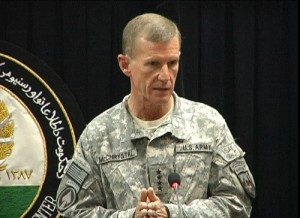
One of the reasons I went into journalism was because I wanted to make a difference. I wanted to write about topics that mattered, like education, social justice and corrupt politicians. I wanted to tell stories that could spark change.
My biggest inspiration was two Washington Post reporters, Bob Woodward and Carl Bernstein. Their articles on the Watergate scandal ultimately toppled a presidency, forcing Richard Nixon to resign.
Woodward and Bernstein had immense power, and I wanted in on it. But by the time I had started journalism school, more than 30 years after Watergate, the gung hoe, investigative reporting that I admired so much had seemed to all but vanish. Journalists no longer had the power they once had.
With the downturn in the economy, many newspapers and media outlets were in the red, and the investigative teams were one of the first to go, leaving papers with barebones staffs and reporting.
Last summer, though, an article gave me a glimmer of hope. The piece took an in depth look at the then commander of all U.S. and NATO forces in Afghanistan, General Stanley McChrystal.
In the Rolling Stone article “The Runaway General,” author Michael Hastings does not sugar coat who McChrystal is. He actually does quite the opposite. McChrystal and his staff are portrayed as gruff, muscle heads who scoff at authority, even poking fun at their superiors.
One exchange in particular ruffled many feathers:
“‘Are you asking about Vice President Biden?’ McChrystal asks with a laugh. ‘Who’s that?’
‘Biden?’ suggests a top adviser. ‘Did you say: Bite Me?’”
Virtually none of President Obama’s top people are spared from McChrystal’s crap-talking team. Hastings even writes about McChrystal’s annoyance with Richard Holbrooke, the special representative to Afghanistan.
The article makes a mockery of McChrystal and the Afghanistan war. Repeatedly, Hastings emphasizes that there’s no way the U.S. can win, likening Afghanistan to Vietnam.
When I first read the piece, my immediate thought was this couldn’t be true. McChrystal seems like a cartoon character, validating virtually every stereotype of the military. He was hotheaded, very simple in his tastes (I mean, come on, his favorite beer was Bud Light Lime), and not afraid of authority. But indeed the article was true. Why else did heads roll so quickly after the article came out?
Within days of the article’s publication, Obama fired McChrystal and launched an investigation to find out who the shit-talking staffers were.
An article hadn’t had that much power in a long time. Hastings exposed what was really going on behind the scenes of the war. The article was an embarrassment to McChrystal and the Obama administration.
Hastings included so many minute details that really brought to life McChrystal’s team. The reporter obviously spent a great deal of time with the men, and that surprised me. It seemed strange that someone that high up in the chain of command, who has largely been closed off to the press, would allow a reporter that much access.
Well, it turns out Hastings wasn’t supposed to spend as much time as he did with McChrystal and his team. The eruption of an Icelandic volcano stranded Hastings in Europe with the motley crew, giving the journalist ample opportunity to get to know how they really operate.
Pieces like the McChrystal article really make me wonder how much we really don’t know about the government. The administration makes it a point to water down the information released to the public, and it isn’t until someone happens to get more access than they should that we get a truish sense of what is going on.
As the economy picks up and the media begins to bleed black again, perhaps some of the reporting like Woodward and Bernstein’s will come back, and journalists will again have the power to change the world. Let’s just hope we don’t have to wait for another Icelandic volcano.